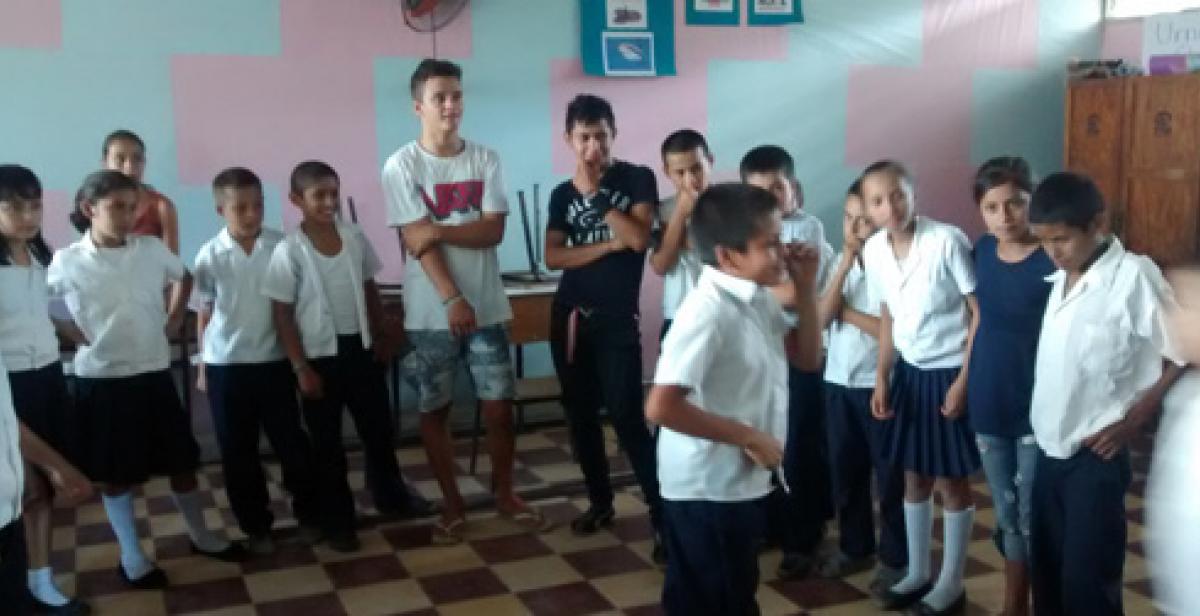Another week has nearly passed, with the British volunteers in Gracias still involved in their community work. The outer, rural communities surrounding the town of Gracias are somewhat isolated from the wider world. The inhabitants’ closest source of modernity is the nearby town, in which we are based. The young people of the villages follow the latest fashions, with high tech mobile devices, designer label clothing, and in the case of the males, carefully attended hairstyles. Despite all this their living conditions probably have not changed much since the 1980's. This is of course, the writer comparing it to the contemporary state of Britain. Houses are comprised of simple but effective equipment; a lavendero provides a means of washing clothes - this is a basin of deep water, with an attached sideboard to scrub clothes up and down. Most kitchens are run by a ‘fogon’, which is a cooker heated by wood and fire. This is the centre of all cooking, where all tortillas, soups and chicken dishes are created.
This week we started delivering workshops in the local school of one particular rural community called La Asomada. As British volunteers, we all witnessed a massive contrast between the way schools are structured here when compared to those in the UK. The school in La Asomada teaches pupils with very basic equipment, which propelled us to be more creative about planning our workshops to deliver to the school. These workshops were a challenge; we had to think about their expectations, objectives, and current available skills. Engaging the class was no problem; the children were excited to participate in our sessions. My workshops consisted of a primary session where we taught a class of 11 year old children about the way littering in the community has a destructive impact upon the environment. With this is mind, we constructed money boxes, decorative flowers, and children's games from recycled material. This proved to be a fun and interactive method of imparting knowledge to the children.
Both the British and Honduran volunteers were split further into different project groups which we worked in after lunchtimes. I was personally involved in the organising and delivering of a radio programme. We did this through the village radio, where a friend of mine, who is local to the community, works as a presenter. The subject was 'money' and the ways it affects people so much. The message we tried to convey was that money is not everything, and that there are other things that can influence and bring happiness to a person. The Honduran volunteers felt this was a topic very relevant to their community. There were two Brits and three Hondurans. The two Brits read passages in Spanish from the bible, on wealth and greed. The Hondurans then engaged in conversational topics between themselves in between the passages and music being played. It seemed that the entire community listened to the programme. On leaving the radio station and entering the village’s centre, people congratulated us on our reading. They enjoyed the show, which meant a job well done, the aim of the programme being to grip as many listeners as possible in the surrounding communities, where we all work together, both British and Hondurans.
Another project group focused on delivering weekly theatre workshops, each with a different theme relevant to the community, as well as focusing on a different theatre skill per session. The second I entered into my allocated classroom, there were hoards of children wanting to participate. We worked with participants aged between 11 and 13, and focused on the theatre skill of mime and telling stories, whilst also focusing on expanding perceptions of gender roles within the community. All children engaged in the interactive session with enthusiasm and enjoyment. We witnessed an increase in group confidence, and improved comfort in engaging with the material.
All in all, our time in la Asomada has been an extremely unique experience, for not many western travellers have set foot in the communities where we work. I believe a handful of Americans have ventured into this part of Honduras, however for us British, to come so far, and see something so diverse from what we know, is a true privilege and indeed an honour.
By Ben Anson and Emma Hooper



